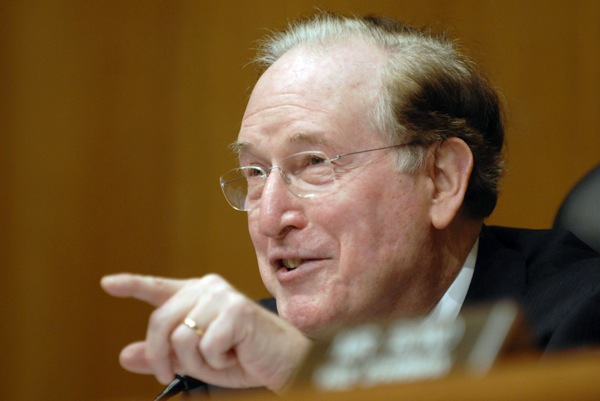Experts: CHIP Repeal Threatens Kids’ Care
Health policy experts warn the Democrats’ proposal to terminate the Children’s Health Insurance Program would hike health care costs for low-income families and increase the number of uninsured kids.
Jul 31, 202054.1K Shares820.6K Views
Sen. Jay Rockefeller (D-W.Va.) (Photo by Mark Murrmann/ZUMA Press)
The Democrats’ proposal to terminatethe Children’s Health Insurance Program would hike health care costs for some of the country’s low-income families, likely increasing the number of uninsured kids in the name of expanding coverage, several health policy experts and state health officials warned Friday.
Under the sweeping health reform bill passed by House Democrats last weekend, CHIP would cease to exist at the end of 2013, instead shuffling those kids into Medicaid or private insurance plans on a proposed insurance marketplace, called the exchange.
[Congress1] Supporters of that strategy — including many House Democratic leaders who have championed the program for more than a decade – argue that it will promote expanded coverage by allowing entire families to join the same insurance plan. But critics, including some children’s welfare advocates and policy experts, maintain that the proposal would shift an additional cost burden on millions of low-income families, thereby discouraging them from buying coverage at all.
Stan Dorn, senior health policy researcher at the Urban Institute, said there are certain advantages to scrapping CHIP. Both Medicaid and exchange plans, for example, would never require congressionalreauthorization — a process CHIP is subjected to every few years, he pointed out. But due to CHIP’s affordability, Dorn said “it’s clear” that kids “are much better off” under CHIP than they would be under private exchange plans.
“It’s not even a close question,” Dorn said during a children’s health care forum on Capitol Hill Friday.
Studies suggest Dorn’s concerns are valid.One analysis, conducted by Watson Wyatt Worldwide, an actuarial research firm, found that families living between 175 and 225 percent of the federal poverty level pay just 2 percent or less of treatment costs under CHIP. Under the proposed exchange plans, researchers found, those same families would pay up to 35 percent of their children’s health costs.
Nate Checketts, director of Utah’s CHIP program, noted that the move to more expensive exchange plans would only discourage low-income families already pinching pennies in the economic downturn. “Unless there’s a mandate, I don’t think those low-income families will sign up for it,” saidChecketts.
CHIP was created in 1997 with broad bipartisan support and renewed for five additional years last February. The popular program is designed to cover children in low-income families that are ineligible for Medicaid. The House bill would both expand Medicaid and dismantle CHIP, sending some kids currently covered under the program into Medicaid plans and others into private plans on the exchange.
The Senate Finance Committee also initially proposed to terminate CHIP when it unveiled its legislation in September. However, the committee last month approved an amendment,sponsored by Sen. Jay Rockefeller (D-W.Va.), to reauthorize the program through 2019.
Supporters of the House proposal argue the advantages of centralizing control over CHIP coverage. Because CHIP is managed by states, there is a fear among some lawmakers that lean economic times could lead to sharp CHIP cuts in some spots, leaving those kids without any coverage at all. Those fears were almost realized earlier this year when California, facing a severe budget squeeze, temporarily frozenew CHIP enrollment. Some health policy experts have pointed out that it’s probably not a coincidence that many House Democrats pushing the CHIP repeal are from California, including Speaker NancyPelosi, Rep. George Miller, who chairs the Education and Labor Committee, and Rep. Pete Stark, who heads the Ways and Means health subpanel.
Rep. John Dingell (D-Mich.) has also defended the plan to terminate CHIP, arguing in a recent email that “enrollment of kids increases when the entire family can be enrolled under one plan.”
Checketts agrees, pointing out the difficulties that can arise when family members’ health coverage is scattered across different programs. “It is a good goal,” he said, “to get families on a single source of coverage.” ** **
Yet some analysts have concluded that affordability is the more significant factor to ensuring coverage.
The advantages of providing families with low-cost access to health coverage for their kids, Dorn said, “significantly outweighs the benefits of putting parents and kids in the same health plan.”
Other children’s health care advocates are agnostic. Jocelyn Guyer, co-executive director at Georgetown University’s Center for Children and Families, said Friday that, while CHIP has proven “a great success,” getting affordable coverage for kids is more important than what program provides it.
Ron Pollack, executive director of Families USA, a consumer health care group, also indicated that affordability is more critical for ensuring children have health insurance. “What are the out-of-pocket costs, and what is the care that they’ll receive?” Pollack asked, without endorsing either the House or Senate approach to CHIP.
If an analysis by the Congressional Budget Office is correct, the Senate’s plan to salvage CHIP is the more affordable option. Examining the Senate Finance Committee’s initial proposal to repeal CHIP**,** CBO Director Douglas Elmendorf notedlast month that “some of those children would be eligible for subsidized coverage in the exchanges but would not be enrolled in an exchange plan.”
The reason, Elemndorf explained, is “at least in part to the higher premiums and higher out-of-pocket costs that they would typically face in such a plan.”

Rhyley Carney
Reviewer
Latest Articles
Popular Articles
